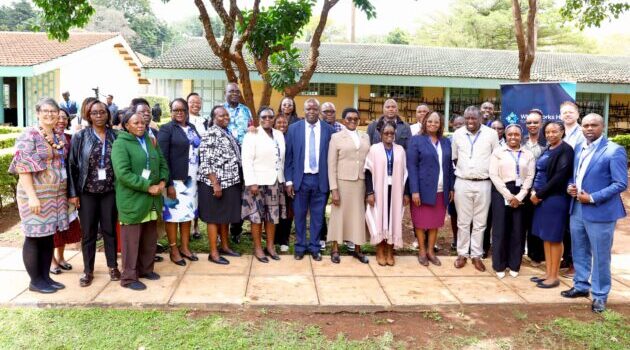
New report urges Kenya, global leaders to act on learning poverty » Capital News
NAIROBI, Kenya Aug 29 – A new literacy paper unveiled at the Education Evidence for Action (EE4A) Conference in Embu has called for urgent translation of education research into government policy to tackle global learning poverty.
The paper, produced by the What Works Hub for Global Education (WWHGE) in partnership with the Global Education Evidence Advisory Panel (GEEAP) and the British Council, stresses that foundational literacy must be prioritized or millions of children risk being locked out of future learning.
It recommends proven strategies such as structured pedagogy, teacher training, and targeted interventions, urging governments to embed evidence-based reforms directly into classrooms.
“Strong partnerships that link global evidence with local policies and teaching practices are key to sustainable progress,” WWHGE said at the conference.
At the conference, WWHGE convened education leaders in a session on “Strengthening the Evidence Ecosystem,” outlining how evidence must not remain in research but be embedded into government reform agendas and classroom teaching.
The British Council also showcased its Learning and Life for Global Education (LL4GE) initiative, which integrates literacy, language, and life skills to equip learners with academic and social competencies for work and citizenship.
Together, WWHGE, GEEAP, and the British Council said they aim to accelerate reforms by linking global research to local education policy, ensuring that proven strategies directly shape how teachers teach and how children learn.
The literacy paper will be officially launched later in 2025, with partners pledging to support ministries of education in scaling up reforms that ensure every child acquires basic reading and learning skills.
Governments must urgently translate education research into classroom policies to combat global learning poverty, a new literacy paper previewed at the 6th Biennial Education Evidence for Action (EE4A) and EDF-Kenya Conference in Embu has urged.
The paper, developed by the What Works Hub for Global Education (WWHGE) in partnership with the Global Education Evidence Advisory Panel (GEEAP) and the British Council, calls for immediate adoption of evidence-based strategies such as structured pedagogy, teacher professional development, and targeted interventions to improve foundational literacy.
“Foundational literacy is essential – without it, children are locked out of future learning opportunities,” the paper stresses, warning that delays in policy adoption risk worsening global learning inequality.
At the conference, WWHGE convened education leaders in a session on “Strengthening the Evidence Ecosystem,” outlining how evidence must not remain in research but be embedded into government reform agendas and classroom teaching.
The British Council also showcased its Learning and Life for Global Education (LL4GE) initiative, which integrates literacy, language, and life skills to equip learners with academic and social competencies for work and citizenship.
Together, WWHGE, GEEAP, and the British Council said they aim to accelerate reforms by linking global research to local education policy, ensuring that proven strategies directly shape how teachers teach and how children learn.
Looking ahead, the partners pledged to work with ministries and education institutions to scale reforms that will guarantee every child the opportunity to acquire foundational literacy skills.